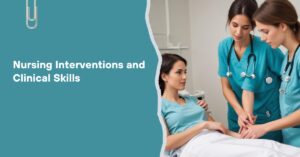Name
Capella University
FPX4030
Professor Lisa Prince-Clark
April 2023
Capella 4030 Assessment 3
Table of Contents
TogglePICO (T) Questions and Evidence-Based Approach
In the seven steps of evidence-based practice, the question “why” is very important to address (McClinton, 2022). For a compilation of research questions of an evidence-based approach, the PICOT template is used widely in healthcare. By using this framework, a researcher can design, and generate a particular research rationale that will be guiding the study pathway, search the in-depth literature, and efficacy of the applied treatment will be evaluated. The PICOT framework works for a qualitative and quantitative research study. “PICOT” is an acronym for Patient, Intervention, Comparison, Outcomes, and Timeframe. This assessment focuses on post-partum issues and misdealing in maternal care. Good support from healthcare providers can prevent postpartum, maternal, and neonatal issues. Social support can reduce the risk of post-partum depression (Shorey & Ng, 2019).
Use of the PICO (T) Approach for Analyzing Possible Treatment of Diabetes Disease
Weak support and ignorance during the post-partum time can impart a negative impact on a new mother like depression, low mobility, reluctance in breastfeeding, etc. Continuous pregnancy and labor support from obstetric nurses and midwives can reduce the probability of caesarian section, neonatal complications, and postpartum depression (Lunda et al., 2018). Providence of services for post-partum care is ensured by family, healthcare workers, local community, welfare agencies, state department, and treatment department (Kroelinger et al., 2019).
The PICOT framework is an important tool for effective patient care and choosing the best treatment for the illness as it satisfies the research questions and inquiries. With PICOT, an evidence-based treatment plan gives the pathway for post-partum handling and maternal care. PICOT inquiries render well-suited treatment for the well-being of the patients and prevent post-partum and neonatal complications. A standard PICOT inquiry framework includes the following:
In delivering mothers, (Patient, P), does post-neonatal care i.e. psychotherapy, timely medicinal assistance (I), compared to the conventional post-partum care (C ) has resulted in better mother’s health, decreased neonatal illness (O) and complications in last one year (T).
Benefit from a PICO (T) Approach
For validating a specific study, the PICOT approach is applied in the form of well-formulated research inquiries. It helps to recognize the studies, interventions, and applied evidence-based practice and summarize the impact of post-partum and neonatal care interventions. It also helps to identify the inquiries, interests, and problems underlying the healthcare intervention (Tukayo et al., 2022). Therefore, using the PICOT framework sensibly can solve a healthcare issue with better patient outcomes.
In the first step, PICOT analysis identifies the “P” which stands for population, and in the case of a healthcare setting, it is a patient i.e., a pregnant woman or a new mother. These PICOT questions assist in identifying the particular intervention and its effectiveness (McClinton, 2022).
In the second step “I” which stands for intervention is defined with respect to a particular issue like the implementation of psychological therapies for better treating the mental state of a new mother (McClinton, 2022). PICOT also compares the new intervention with the conventional one for a better understanding of the effect. In this particular case, psychological therapies are a new intervention after delivery that will improve the state of mind of a new mother. Before that, there was no such intervention instead women were supposed to improve their states on their own. By adopting this new intervention, there will be a reduction in maternal and neonatal complications.
The PICOT framework assists in achieving specific results which include quality patient care, a decrease in neonatal mortality, reduced illnesses, motivation for breastfeeding, and of course for saving the costs for a healthcare organization (McClinton, 2022). It also helps to achieve the particular goals during a specified time period. In this scenario, the outcomes can be monitored for 1 year, and post-partum and neonatal issues can be reduced and managed.
Sources of Evidence
PICOT framework is evaluating the impact of increased maternal and neonatal care (psychological therapies and new neonatal handling techniques) in comparison to the conventional post-natal handling within the timeframe of 1 year.
Effective medication and psychotherapy can prevent pre- and post-partum depression at an early age. During pregnancy and right after giving birth, a woman undergoes many psychological, physical, and emotional changes due to which she feels herself stranded and considers motherhood a difficult task. The time period for post-partum is twelve weeks during which a Primary Care Physician (PCP) works on a community basis to provide post-partum care to women. This post-partum care has a positive impact on overall neonatal and maternal health (Poon et al., 2021). In the early postpartum period, when a mother is discharged from the hospital, she should be provided with healthcare help to better understand breastfeeding. Even in the later post-partum period, women require assistance with breastfeeding issues. In the conventional health services, these issues were left unintended which made many new mothers reluctant to breastfeed. In maternal and neonatal care, post-partum therapies can help to improve this state of the mother and can prevent a child from suffering from different illnesses. Identifying maternal issues, neonatal mortality, and morbidity, the Alliance of Innovation in Maternal Health, USA has compiled a group for interdisciplinary teams to provide maternal care in form of a bundle. This bundle works from birth to the post-partum period in which workers work by “Readiness, Responsiveness, Reporting, and Recognizing” (Stuebe et al., 2020).
There are a number of valuable guidelines published by international and well-reputed organizations like the World Health Organization (WHO), United Nations International Children’s Emergency Fund (UNICEF), Bill and Melinda Gates Foundation, Maternal Health Task Force and National Institute of Health (NIH) provide assistance on neonatal and maternal interventions to avoid complications. Furthermore, there are many electronic toolkits that are helping new mothers to connect with the community and seek professional assistance on their every issue. Healthcare providers can have better access to all sorts of information through these toolkits and web-based resources (Patterson et al., 2021).
Outcomes reported by different patients worldwide, different qualitative and quantitative researches help to provide valuable knowledge on pre- and post-partum experiences, prevention, intervention, challenges, and the role of facilitators. Also, web-based interventions are increasing the well-being of mothers and newborn’s health (Mu et al., 2020). Furthermore, the research articles from Medline, PubMed, and NIH can effectively satisfy the PICOT inquiries for evidence-based practices.
Criteria or Rationale
For evaluating the objecting and standard criteria of relevant gathered sources, the CRAAP test is a helpful tool. It centers on relativity, timeframe, validity, objective, and authority (Esparrago-Kalidas, 2021). The up-to-date research sources which are no more than five years older provide valuable evidence on maternal and neonatal care. Furthermore, all the sources are relatable to the research topic i.e., providing evidence on postpartum, neonatal, and maternal care, pregnancy, and all related issues. These also provide the handling and management strategies that strengthen our knowledge of an early intervention. On the topic of maternity, neonatal, and post-partum care WHO, UNICEF and NIH are credible websites that are operated by authorized personnel worldwide. The respective sources provide precise knowledge on maternity dealings, neonatal handling, and preventing post-partum depression.
Findings from Articles
According to a research study, only 16-23% of women visit the hospitals for 21 to 56 days for seeking post-partum help. This proportion is even lower in marginalized communities where issues of finances and transportation make post-partum care more difficult (Stuebe et al., 2020). This increases the rate of neonatal mortality and morbidity.
For solving this major problem faced by the majority of women, early intervention by healthcare providers is very important. Timely psychotherapies should be ensured for better handling of maternal issues. Better neonatal and maternal care can also be guaranteed by online interventions through different websites. Digital tools have revolutionized everything around us. During the times of COVID-19, childbirths, deliveries, and maternal care were one of the most affected areas. Telemedicine helped to reduce the gap between pregnant patients and healthcare workers (Morgan et al., 2022). Likewise, many digital tools can help to narrow the gaps between healthcare services and obstetric patients.
A study published in “Frontiers in Psychology” in 2019 has shown that preventive interventions for post-partum depression are extremely beneficial. Face-to-face therapies are far more effective than other forms. Therefore, there is a need to inculcate cognitive behavioral theory in such intervention models for obtaining better results (Fonseca et al., 2019).
A study has shown that post-partum depression can be caused by multiple factors like unplanned pregnancy, lack of care, gender biases towards the baby, unawareness about the mother’s tasks, and many other social and psychological factors. In such circumstances, psycho-educational interventions have been proven successful. These have helped both a patient and healthcare workers in solving problems, learning skills, changing roles, interpersonal interaction, and changing cognitive behavior (Linsu et al., 2018).
Most Credible Source
One of the most valid and credible sources is Rafferty et al., 2018 because it is a peer-reviewed article on perinatal depression. It is published in the American Academy of Pediatrics (AAP) which is a valid, well-reputed, and authorized resource. AAP provides all information on management, skill development, and intervention on pediatric and obstetric topics.
Relevance of these Findings
A research study on neonatal mortality management has shown that major causes of newborn deaths are lower weights, pulmonary infections, pre-term birth, and delivery complications. Effective and timely management of these problems can lower the risk of neonatal mortalities. From a maternal perspective, neonatal deaths can occur due to poor maternal health, lack of a nutritious diet, and no antenatal visits (Andegiorgish et al., 2020). Therefore, it can be concluded from the research study that the role of early interventions by healthcare providers is immensely important. It can help to prevent multiple and complex issues in maternal and neonatal care. Internet-based interventions hold significance in this regard as they make healthcare accessible for all.
There are many research studies that validate the use of early maternal and neonatal care for the prevention of mortality and morbidity. Post-partum education, psycho-educational interventions, and neonatal management are some major management measures for handling maternal and neonatal problems. Good coordination between healthcare workers and a woman’s family can help to achieve the objectives. Women should be provided with education and training sessions on breastfeeding, reproductive health, infant upbringing, and handling (Walker et al., 2019). These interventions can help to avoid depression, anxiety, and related psychological problems in a new mother.
The above findings are relevant to the PICOT inquiries as these are well-informed on the issues of maternal and neonatal care. These also validate the role of healthcare workers along with social support for preventing and managing pre- and post-partum depression and neonatal problems. PICOT framework will assist in the management of pregnancy and neonatal issues within the period of one and a half years.
Relevant Findings Lead to Positive Outcomes
Psycho-educational interventions and early neonatal handling are two important intercedings that help to prevent post-partum depression and neonatal complications. These methods are low-cost and with web-based interventions, it can improve the accessibility of healthcare services. Moreover, the formation of multidisciplinary healthcare groups can help obstetric patients in treating and preventing their complex issues.
Conclusion
Pre- and post-partum time period is crucial for a mother and a baby both. Major deaths of women and infants both occur due to mishandling during this time period. Moreover, there are many emotional, physical, and psychological implications of childbirth for a mother. Therefore, PICOT analysis assists in recognizing the evidence-based inquiries about this healthcare issue and suggests particular useful interventions. These treatment techniques will be helpful in dealing with the problems. Furthermore, the CRAAP test is used for evaluating the authenticity and validity of the resources.
References
Andegiorgish, A. K., Andemariam, M., Temesghen, S., Ogbai, L., Ogbe, Z., & Zeng, L. (2020). Neonatal Mortality And Associated Factors In The Specialized Neonatal Care Unit Asmara, Eritrea. BMC Public Health, 20(1). https://doi.org/10.1186/s12889-019-8118-x
Esparrago-Kalidas, A. J. (2021). The Effectiveness of CRAAP Test in Evaluating Credibility of Sources. International Journal of TESOL & Education, 1(2), 1–14. https://i-jte.org/index.php/journal/article/view/25
Fonseca, A., Monteiro, F., Alves, S., Gorayeb, R., & Canavarro, M. C. (2019). Be a Mom, a Web-Based Intervention to Prevent Postpartum Depression: The Enhancement of Self-Regulatory Skills and Its Association With Postpartum Depressive Symptoms. Frontiers in Psychology, 10. https://doi.org/10.3389/fpsyg.2019.00265
Kroelinger, C. D., Rice, M. E., Cox, S., Hickner, H. R., Weber, M. K., Romero, L., Ko, J. Y., Addison, D., Mueller, T., Shapiro-Mendoza, C., Fehrenbach, S. N., Honein, M. A., & Barfield, W. D. (2019). State Strategies to Address Opioid Use Disorder Among Pregnant and Postpartum Women and Infants Prenatally Exposed to Substances, Including Infants with Neonatal Abstinence Syndrome. MMWR. Morbidity and Mortality Weekly Report, 68(36), 777–783. https://doi.org/10.15585/mmwr.mm6836a1
Linsu, T., Sailaxmi, G., & Jithin Thomas, P. (2018). Interventions for Mothers with Postpartum Depression: A Systematic Review. International Journal of Depression and Anxiety, 1(1). https://doi.org/10.23937/ijda-2017/1710002
Lunda, P., Minnie, C. S., & Benadé, P. (2018). Women’s Experiences Of Continuous Support During Childbirth: A Meta-Synthesis. BMC Pregnancy and Childbirth, 18(1). https://doi.org/10.1186/s12884-018-1755-8
McClinton, T. D. (2022). A Guided search: Formulating A PICOT from Assigned Areas of Inquiry. Worldviews on Evidence-Based Nursing, 19(5). https://doi.org/10.1111/wvn.12598
Morgan, A., Goodman, D., Vinagolu-Baur, J., & Cass, I. (2022). Prenatal Telemedicine During COVID-19: Patterns Of Use And Barriers To Access. JAMIA Open, 5(1). https://doi.org/10.1093/jamiaopen/ooab116
Mu, T., Li, Y., Xu, R., Chen, J., Wang, Y., & Shen, C. (2020). Internet‐Based Interventions For Postpartum Depression: A Systematic Review And Meta‐Analysis. Nursing Open. https://doi.org/10.1002/nop2.724
Patterson, B., Clark, L., Sanchez-Birkhead, A. C., Martinez, L. I., & Egger, M. J. (2021). Developing A Web-Based Toolkit For New Mothers About Postpartum Pelvic Floor Health In Collaboration With A Professional Medical Association. Journal of the Medical Library Association : JMLA, 109(4), 667–671. https://doi.org/10.5195/jmla.2021.1078
Poon, Z., Lee, E. C. W., Ang, L. P., & Tan, N. C. (2021). Experiences Of Primary Care Physicians Managing Postpartum Care: A Qualitative Research Study. BMC Family Practice, 22(1). https://doi.org/10.1186/s12875-021-01494-w
Rafferty, J., Mattson, G., Earls, M. F., & Yogman, M. W. (2018). Incorporating Recognition and Management of Perinatal Depression Into Pediatric Practice. Pediatrics, 143(1), e20183260. https://doi.org/10.1542/peds.2018-3260
Shorey, S., & Ng, E. D. (2019). Evaluation of a Technology-Based Peer-Support Intervention Program for Preventing Postnatal Depression (Part 2): Qualitative Study. Journal of Medical Internet Research, 21(8), e12915. https://doi.org/10.2196/12915
Stuebe, A. M., Kendig, S., Suplee, P. D., & D’Oria, R. (2020). Consensus Bundle on Postpartum Care Basics. Obstetrics & Gynecology, Publish Ahead of Print. https://doi.org/10.1097/aog.0000000000004206
Tukayo, I. J. H., Hardy, S., Yuliyanik, Fakhruddin, A., AFZAL, R., & Al-Jaidah, M. A. M. (2022). Overseas Job Opportunity among Fresh Graduate of Healthcare Workers: A SWOT Analysis. International Journal of Advanced Health Science and Technology, 2(1), 47–53. https://doi.org/10.35882/ijahst.v2i1.8
Walker, K. C., Arbour, M. W., & Wika, J. C. (2019). Consolidation of Guidelines of Postpartum Care Recommendations to Address Maternal Morbidity and Mortality. Nursing for Women’s Health, 23(6), 508–517. https://doi.org/10.1016/j.nwh.2019.09.004








